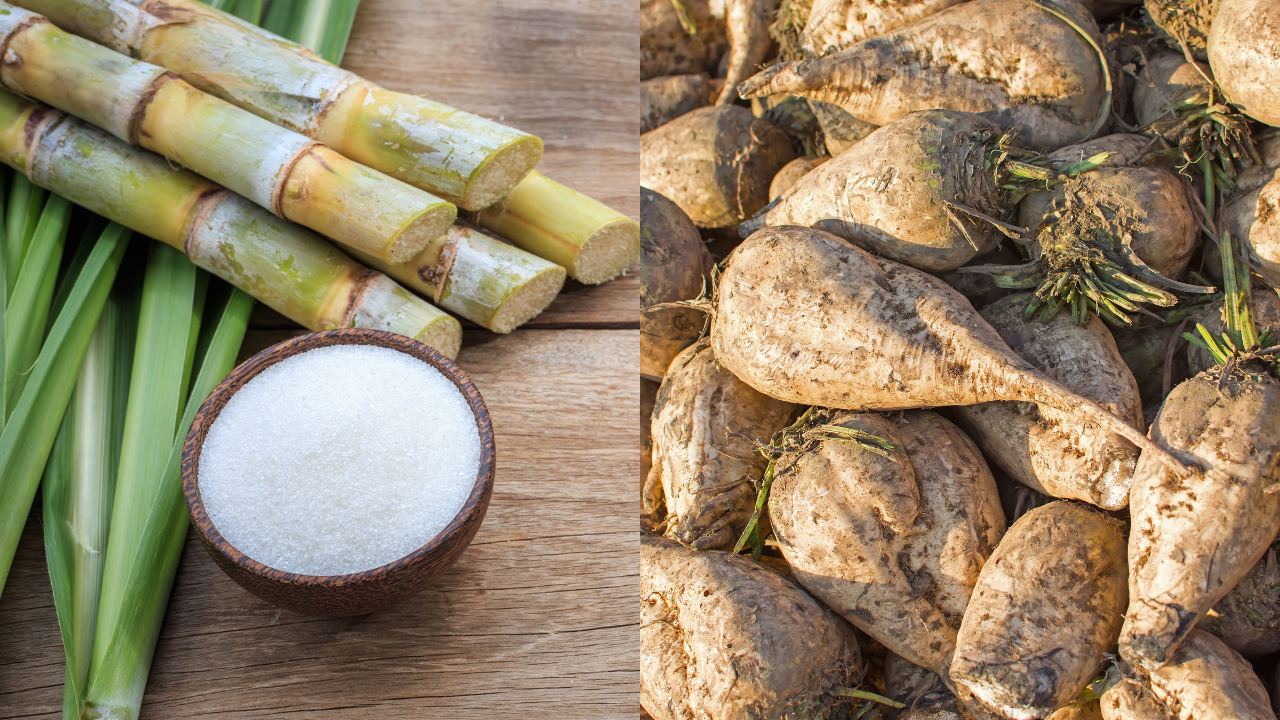The agricultural practices for beet sugar vs cane sugar contribute to differences in processing efficiency.
The agricultural practices for beet sugar vs cane sugar contribute to differences in processing efficiency.
Blog Article
Exploring the Differences in operation and Advantages Between Beet Sugar Vs Cane Sugar
In the culinary globe, the choice in between beet sugar and cane sugar is not simply regarding sweet taste yet entails a nuanced consideration of taste, application, and effect. While both sugars stem from various plants, each undertakes unique production procedures that discreetly influence their characteristics and viability for numerous dishes.
Origins and Manufacturing Procedures of Beet and Cane Sugar

Walking cane sugar, on the various other hand, comes from the sugarcane plant, an exotic grass native to Southeast Asia however currently grown in exotic zones worldwide - beet sugar vs cane sugar. The production of cane sugar starts with the harvesting of cane stalks, which are squashed to launch the juice.

Nutritional Content and Health And Wellness Considerations

When contrasting the nutritional content of beet sugar and cane sugar, it comes to be evident that both types basically offer the very same caloric values, with around 16 calories per teaspoon and no substantial nutrient diversity. Each is made up almost completely of sucrose, which is a simple carb that uses quick power but lacks vitamins, minerals, or fiber. This resemblance includes their influence on wellness, particularly worrying blood sugar degrees. Both sugars, when consumed in excess, can add to raised blood glucose degrees, a threat element for diabetic issues and various other metabolic disorders. Extreme intake can lead to weight gain and oral troubles, as both sugars are just as cariogenic, promoting tooth decay. From a health and wellness point of view, moderating consumption of any kind of kind of sugar, whether from beet or cane, is advisable to avoid these potential negative effects on well-being. Thus, neither holds a distinct advantage over the other in terms of health advantages.
Taste Profiles and Culinary Applications
Despite their similar chemical frameworks, beet sugar and cane sugar vary subtly in flavor, which can influence their use in numerous cooking contexts. Cane sugar commonly carries a hint of molasses, also in its refined form, providing a cozy, caramel-like undertone that improves baked goods, coffee, and chocolate-based dishes. On the various other hand, beet sugar is characterized by its extremely improved, neutral preference, making it a versatile check my reference sweetener that does not modify the flavor accounts of dishes.
Environmental Effect and Sustainability
While both beet and cane sugars are derived from plants, their environmental influences vary significantly due to the distinct approaches of farming and handling needed for each. Sugar beet growing typically includes substantial automation, which can enhance fossil fuel consumption and carbon exhausts.
Furthermore, the processing of sugarcane frequently generates a considerable amount of waste, consisting of bagasse, which, although usable as biofuel, regularly adds to air contamination if shed inefficiently. Sugar beet processing uses more of the raw products, resulting in much less waste. Both industries encounter challenges in reducing their ecological footprints, however ongoing technologies in agricultural techniques and waste click this site management are intending to enhance sustainability.
Economic Variables Influencing the Sugar Market
The financial dynamics of the sugar industry are dramatically influenced by worldwide market demands and profession policies. Aspects such as tolls, aids, and global trade contracts play vital duties in shaping the competitive landscape. As an example, in regions where sugarcane or sugar beet production is subsidized, manufacturers might have a financial advantage that enables them to supply lower prices on the worldwide market. This can develop disparities in success and market gain access to for manufacturers in nations without such subsidies.
Furthermore, fluctuations in worldwide demand for sugar, affected by nutritional patterns and industrial usage in foodstuff, straight effect costs and production levels. beet sugar vs cane sugar. Weather problems likewise play a critical role, as they can considerably affect plant returns and, as a result, the supply chain. This variability presents a degree of economic uncertainty that can lead to financial investment volatility in sugar manufacturing industries, influencing choices from growing to market technique
Conclusion
Finally, both beet and cane sugar have unique top qualities that match different culinary demands. While cane sugar conveys an abundant flavor perfect for boosting baked products, beet sugar's neutrality is best for lighter meals. Nutritional resemblances notwithstanding, their distinct production procedures and ecological effects add intricacy to the selection between them. Therefore, understanding these differences click here now helps chefs and customers make informed choices that line up with their health, cooking, and moral preferences.
Report this page